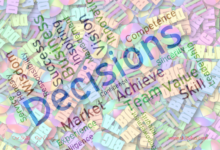
Change and Organizational Development Manager: ” Roles and Skills “
While we recognize the importance of managers’ role in successful transformation. We often overlook that change embracement and organizational development must occur at the core of employees as a corporate workforce. We may place so much emphasis and trust on managers’ leadership ability. That we must catch up on why change management and organizational development fail. Managers need to be brave by taking risks. They need to look at the big picture and articulate a high level of change and organizational development to the organization, explain why it is happening, and motivate employees to support the transition. The change and organizational development manager must be insightful. And possess advanced skills that enable him to foresight the future. And implement the change process smoothly to achieve the organization’s and its employees’ goals.
Change and Organizational Development Manager
The Change and Organizational Development Manager is a professional whose main task is to ensure that the organization’s staff adapts quickly. And efficiently to various change and organizational development initiatives and projects. Also, it mainly focuses on how changes in business systems. And processes or the implementation of new technology will affect existing employees. And create change management plans that reduce employees’ resistance to change. The change and organizational development manager must develop systems encouraging employees to adopt new technologies. And various processes to improve the organization’s return on investment.
Roles and Responsibilities
Managers are more focused on making business transitions a success. And on implementing organizational change and allocating resources, such as staff, and must occur. Ideally, leaders will also be managers. But the manager’s primary responsibility is to know how to design, direct, and shape change and organizational development processes.
Furthermore, the role of managers and supervisors is to legitimize changes that affect the work teams they lead. They must therefore play a significant role in producing the results of change and organizational development. As employees look to their managers for overt instructions. And subtle cues on how upcoming organizational changes will affect their role. Some of the roles and responsibilities of the Change and Organizational Development Manager are as follows:
- Create a change and organizational development management process and implement tools to help all employees of the organization quickly adopt any changes due to a new project.
- Support all efforts to communicate the changes, along with ways to minimize their impact on employees.
- Conduct studies and analyses to assess how changes affect employees. If managers and supervisors are willing to implement them, who are the most influential people in the organization when it comes to enforcing the changes?
- Develop training programs and documentation to help managers and supervisors implement various practices to make any transition easier for employees.
- Identify and mitigate any potential risks associated with the proposed changes.
- Identify any internal or external resistance to the proposed changes and manage them accordingly.
- Assist management in defining employee roles and responsibilities after implementing changes.
- Identify and report any problems that arise because of implementing various changes within the organization.
- Create relevant metrics to measure the success of the implemented change.
- Implementation of organizational change management and development procedures at the corporate level.
Skills
- Communication skills: Change and organizational development managers need to communicate effectively with everyone within the organization, as they need to reinforce and explain all actions related to change.
- Project Management Skills: Implementing large-scale organizational change is usually a large project. Change and organizational development managers need to think like project managers, quickly identify current and potential problems and then come up with solutions.
- Soft Skills: Given that the leading role of a change and organizational development manager is to influence others to adapt quickly to change, having the right interpersonal skills to convince others of the validity of your plans is a critical skill for this role.
- Strategic thinking skills: The solutions implemented by the change and organizational development manager can affect the organization in several ways, both now of their implementation and in the future. Furthermore, they need to think strategically and ensure that any action they take is for the organization’s benefit.
- Emotional Intelligence Skills: Emotionally intelligent leaders do not make their actions and decisions reactions but instead choose the best behavior and the best decision in any situation they face. Therefore, the change and organizational development manager has the skill of emotional intelligence that helps him to easily communicate with employees and the team, as well as ways to express different feelings and choose the appropriate time to present some ideas during the change process.
- Technology and innovation management skills: Technology and innovation management skill involve planning, implementing, evaluating, and controlling the organization’s resources and capabilities to build value and competitive advantage. The fact is that organizational structure changes are an outgrowth of technological innovations in achieving work. Therefore, the change and organizational development manager must possess the skill of managing technology and innovation to be able to implement the change process in a highly effective manner commensurate with the innovative transformations in the organization.
- Problem-solving and decision-making skills: Possessing these skills by the change and organizational development manager indicates the ability to find practical solutions to the various problems encountered during the change management process promptly that ensures avoiding or minimizing losses as much as possible.
Many managers experience change and organizational development throughout their careers. By learning to anticipate and address the challenges associated with change and organizational development. As a future manager, you can ensure that you are equipped with the skills and knowledge to manage them.



